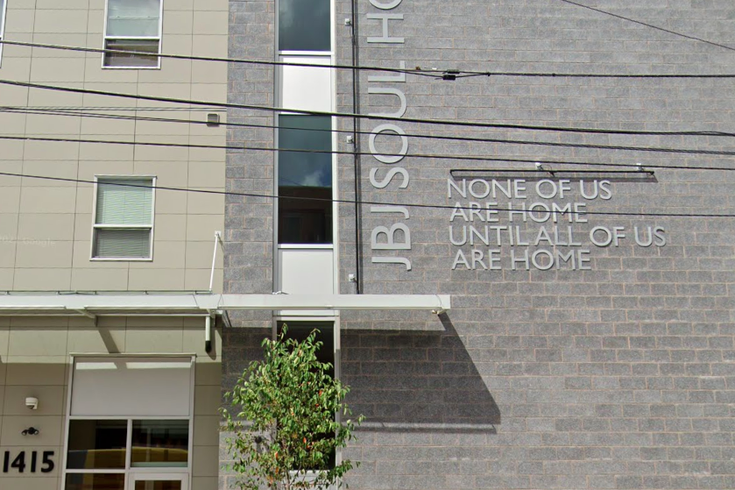
February 21, 2022
 Street View/Google
Street View/Google
Project HOME received $3.5 million in grant funding from Pew Charitable Trusts to support its initiatives aimed at additional supportive housing units and assisting those living with substance use disorder. Project HOME is one of five nonprofits to receive grants from Pew.
Project HOME, a Philadelphia-based housing nonprofit, has been working to end chronic street homelessness in the city since its inception in 1989.
The organization has added hundreds of supportive and recovery-focused housing units to the area through community outreach initiatives, advocacy, and organization partnerships. The group has also expanded to include health care outreach services to residents experiencing homelessness or housing insecurity.
The funding will go towards the addition of 150 supportive housing units in the city, as well as an expansion of supports for people experiencing substance use disorder – primarily in the Kensington community.
"We're seeing more people affected by serious behavioral health issues, mental illness, and addiction," Project HOME co-founder Sister Mary Scullion told KYW. "The number of overdoses across the country is at an all-time high. This grant will help us to reach our goal of 1,000 units of affordable housing."
There are an estimated 5,700 Philadelphians experiencing homelessness, according to the city's Office of Homelessness Services. That includes at least 950 people who are unsheltered. Scullion said that 75% of those experiencing street homelessness are Black and Brown people.
In a 2019 updated report on Project HOME's impact, the nonprofit has added at least six new residential centers, 300 affordable housing units, and 62 recovery-centric beds, resulting in 894 total housing units. The grant will allow Project HOME to expand its housing inventory even further, and provide outreach to more people experiencing homelessness as a result.
In November, Project HOME broke ground on a 54-bed recovery housing facility in Kensington with support from the Jon Bon Jovi Foundation. When finished, the facility will provide long-term housing for people struggling with homelessness or addiction.
It's the second facility of its kind in Kensington, a community hit particularly hard by the opioid epidemic. This additional grant funding will expand the nonprofit's outreach for people living with substance use disorder.
"The five-year, multimillion dollar investments in Project HOME and Compass Working Capital will help these organizations expand and enhance their already successful programs so that more Philadelphians are able to achieve housing security, build savings, and achieve economic mobility," said Kristen Romens, project director of the Pew Fund for Health and Human Services in Philadelphia.
.@ProjectHOME works to end and prevent chronic street homelessness in #Philadelphia. Our $3.5 million growth grant will support their efforts to build 150 housing units for people struggling with substance use and homelessness.
— The Pew Trusts (@pewtrusts) February 17, 2022
Learn how: https://t.co/tM1HBq4hWc
Other organizations receiving grant funding from Pew include Compass Working Capital, which will receive $2.5 million for economic mobility programs for families living in federally subsidized housing.
The Philadelphia Orchestra will receive $1 million to support its partnership with the Kimmel Center to create a unified culture within the Kimmel Cultural Center.
The Independence Visitor Center received $500,000 to support the recovery of the city's tourism sector in the wake of the ongoing COVID-19 pandemic. The grant will support digital marketing and outreach efforts to increase tourism to Philadelphia.
Lastly, the Smith Memorial Playground will receive $200,000 over two years to support its pandemic recovery, including adding rotating in-person exhibits over the next two years.
Pew previously awarded grant money to Kensington-based Prevention Point, a nonprofit providing harm reduction services to residents living with substance use disorder in the community. Harm reduction services, including the use of medication-assisted treatment like methadone, have become more common in Philadelphia and around the country.
Earlier in February, Philadelphia health officials unveiled a first-of-its-kind Narcan vending machine at a West Philadelphia library. The program, called "Narcan Near Me," is meant to reduce overdose deaths by using data-driven, preventative measures and making sure the life-saving treatment is accessible and available.